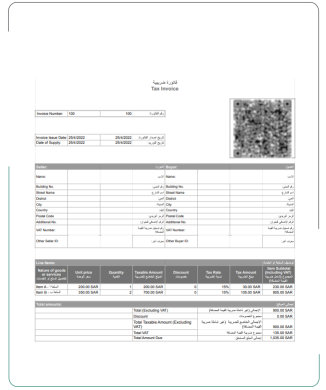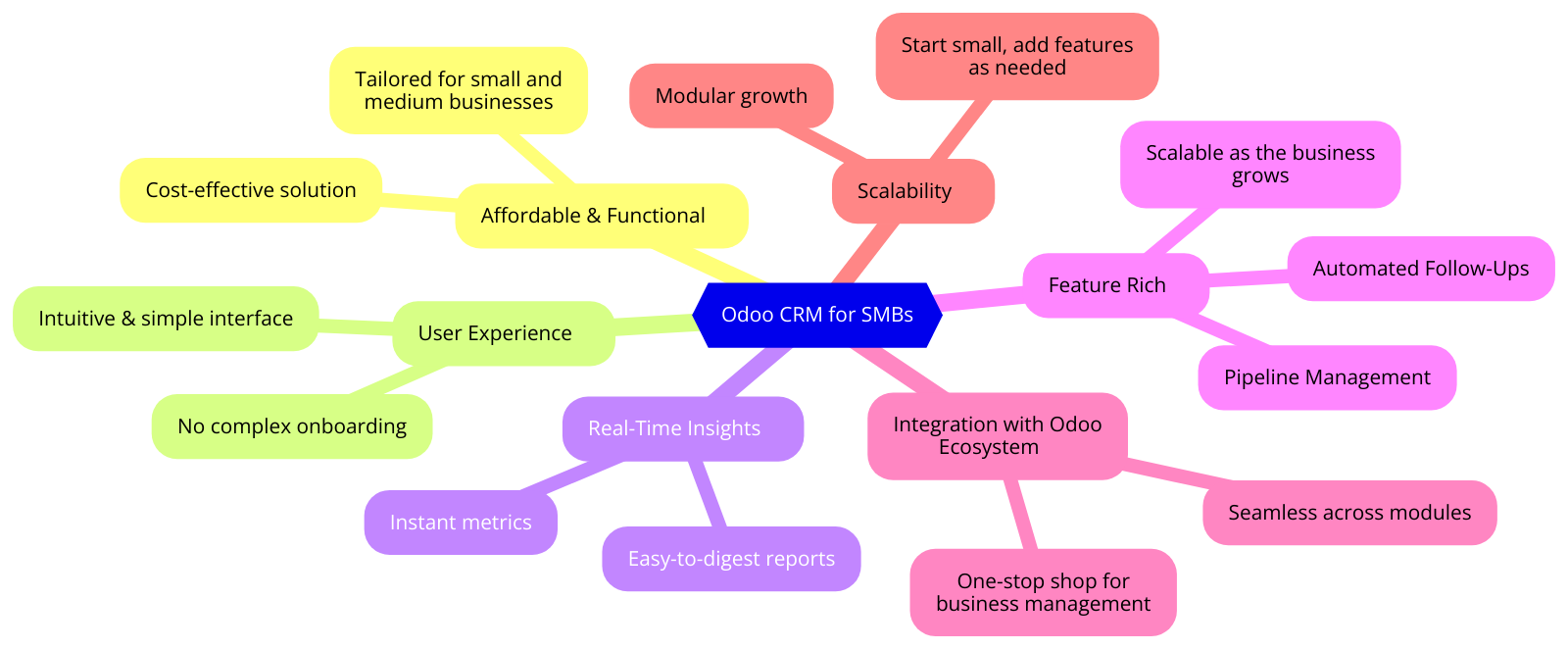
In the realm of financial management and governmental regulations, Saudi Arabia has been making significant strides, particularly with the introduction of e-invoicing by the Zakat, Customs, and Tax Authority (ZATCA). This shift marks a pivotal moment in the country’s tax landscape, promising increased efficiency, transparency, and compliance. In this blog post, we’ll delve into the intricacies of e-invoicing, its implementation by ZATCA, and the benefits it brings for taxpayers.
Who are ZATCA (Zakat, Customs, and Tax Authority)?
ZATCA, the Zakat, Customs, and Tax Authority, is a governmental body in Saudi Arabia responsible for overseeing matters related to Zakat (Islamic tax), customs, and taxation. With a mandate to ensure compliance and facilitate smooth operations in these domains, ZATCA plays a crucial role in shaping the fiscal landscape of the kingdom.
How did Tax Invoicing Previously Work in Saudi Arabia?
Traditionally, tax invoicing in Saudi Arabia followed conventional paper-based processes, which often proved cumbersome and prone to errors. Businesses were required to generate physical invoices, leading to inefficiencies in documentation, storage, and retrieval. This outdated system posed challenges for both taxpayers and regulatory authorities in terms of accuracy, auditability, and timely reporting.
What is E-Invoicing?
E-invoicing, or electronic invoicing (FATOORAH), is the digital transformation of the invoicing process, wherein invoices are created, transmitted, and stored electronically. This method streamlines the entire invoicing lifecycle, from generation to payment, leveraging technology to enhance accuracy, security, and compliance.
Why is E-Invoicing being Introduced in KSA?
The introduction of e-invoicing in Saudi Arabia is driven by the government’s commitment to modernize and enhance the efficiency of its tax ecosystem. By transitioning to electronic invoicing, ZATCA aims to:
1. Improve tax compliance and transparency
2. Reduce the administrative burden on businesses
3. Minimize tax evasion and fraud
4. Facilitate real-time monitoring and auditing
5. Enhance overall economic competitiveness
Benefits for Taxpayers
The implementation of e-invoicing brings forth a myriad of benefits for taxpayers, including:
1. Simplified invoicing processes
2. Reduced paperwork and associated costs
3. Faster invoice processing and payment cycles
4. Enhanced data accuracy and integrity
5. Seamless integration with accounting systems
6. Compliance with regulatory requirements
7. Improved cash flow management
The Two Phases of E-Invoicing Regulations in KSA
The e-invoicing regulations in Saudi Arabia are being rolled out in two phases:
1. Voluntary phase: During this phase, businesses have the option to adopt e-invoicing voluntarily, allowing them to familiarize themselves with the new system and its requirements.
2. Mandatory phase: Following the voluntary phase, e-invoicing will become mandatory for all eligible businesses, as per the specified timeline set by ZATCA.
Timeline
The transition towards e-invoicing in Saudi Arabia is being executed through two distinct phases, each with specific requirements and enforcement timelines.
Phase 1: Generation Phase (Enforced as of December 4th, 2021)
Phase 1 marks the Generation phase, mandating taxpayers to generate and archive tax invoices and notes utilizing electronic solutions compliant with Phase 1 regulations. Effective December 4th, 2021, this phase applies to all taxpayers, excluding non-resident taxpayers, and entities issuing tax invoices on behalf of VAT-registered suppliers. Taxpayers are obligated to comply with the Generation phase requirements, ensuring the electronic generation and storage of invoices and related documents.
Phase 2: Integration Phase (Enforced in Waves Starting January 1st, 2023)
Phase 2, termed the Integration phase, unfolds in waves based on targeted taxpayer groups. This phase introduces advanced technical and business requirements for electronic invoices and electronic solutions, necessitating integration with ZATCA’s systems. ZATCA notifies taxpayers of their respective Integration wave at least six months beforehand.
Integration Wave 1 (January 1st to June 30th, 2023): Targets taxpayers with annual taxable revenue exceeding 3 billion SAR in 2021.
Integration Wave 2 (July 1st to December 31st, 2023): Targets taxpayers with annual taxable revenue surpassing 0.5 billion SAR in 2021.
Key Integration Dates:
December 4th, 2020: Publication of e-invoicing regulations
December 4th, 2021: Commencement of e-Invoicing Generation enforcement
January 1st, 2023: Initiation of Integration enforcement
This phased approach enables a systematic and manageable transition towards e-invoicing, allowing businesses to adapt to evolving requirements while ensuring compliance with ZATCA’s regulations. By aligning with the prescribed timelines, taxpayers can navigate the implementation process efficiently, leveraging electronic solutions to enhance invoicing practices and contribute to the advancement of Saudi Arabia’s digital economy.
Types of E-Invoices
E-invoices in Saudi Arabia can be broadly categorized into two types:
In the realm of e-invoicing in Saudi Arabia, there exist two primary types of electronic invoices, each serving distinct transactional purposes and subject to specific regulatory requirements.
1. Tax E-Invoice (Standard E-Invoice)
Tax e-invoices are pivotal for business-to-business (B2B) and business-to-government (B2G) transactions, serving as essential documentation for buyers to claim input VAT deduction. During Phase 1 implementation, these invoices necessitate sharing with buyers in the prescribed format. However, as Phase 2 unfolds, additional measures come into play, requiring tax e-invoices to undergo cryptographic stamping and clearance by ZATCA before dissemination to buyers.
To comply with regulations, taxpayers must utilize compliant Electronic Invoice Generation Solutions (EGS) onboarded to the ZATCA portal. These solutions facilitate the generation of tax invoices encompassing all mandatory fields stipulated by ZATCA, ensuring adherence to regulatory standards and seamless integration with the tax authority’s systems.
2. Simplified E-Invoices
Simplified e-invoices cater specifically to business-to-consumer (B2C) transactions, typically issued at the point of sale. These invoices, also known as simplified tax invoices or B2C invoices, carry a unique validation feature in the form of a QR code, enhancing transparency and authenticity.
Since the inception of Phase 1, companies have been mandated to share simplified invoices with their customers, ensuring compliance with regulatory directives. However, with the advent of Phase 2, further obligations emerge, compelling businesses to report all simplified transactions to ZATCA within 24 hours of issuance. This real-time reporting requirement bolsters oversight and enables ZATCA to monitor B2C transactions efficiently, promoting tax compliance and transparency across the spectrum.
E-Invoice Structure

E-invoices adhere to a standardized structure prescribed by ZATCA, ensuring consistency and compliance across all transactions. The e-invoice structure encompasses key elements essential for accurate documentation and seamless integration with regulatory systems. Here’s a breakdown of what this might look like:
Invoice Reference Number (IRN): Each e-invoice is assigned a unique Invoice Reference Number (IRN), facilitating traceability and verification of transactional authenticity. The IRN serves as a crucial identifier in the invoice ecosystem, enabling stakeholders to track and authenticate invoices with precision.
Invoice Issue Date: The date of issuance is a fundamental component of the e-invoice, indicating the precise moment when the transaction occurred. This timestamp provides clarity regarding the timeline of the transaction, aiding in accounting, auditing, and dispute resolution processes.
Seller’s Name, Address, and ID: The e-invoice includes comprehensive details of the seller, encompassing their name, physical address, and unique identification number. This information enables accurate identification and verification of the seller’s identity, ensuring transparency and accountability in commercial transactions.
Buyer’s Name, Address, and ID: Similarly, the e-invoice features detailed information about the buyer, including their name, address, and identification number. This data is essential for establishing the recipient of the goods or services and facilitating seamless communication between parties.
Product or Service Description: A detailed description of the products or services transacted forms an integral part of the e-invoice. This section provides clarity regarding the nature, quantity, and specifications of the items exchanged, facilitating accurate recording and reconciliation of transactions.
VAT Calculation Fields: The e-invoice incorporates various VAT calculation fields essential for accurate tax assessment and reporting. These fields include net amounts, gross amounts, VAT rates, subtotals, and other relevant tax-related information. By capturing comprehensive VAT data, the e-invoice ensures compliance with regulatory requirements and facilitates seamless tax administration.
Adhering to this structured format ensures consistency, accuracy, and compatibility across e-invoices, enabling smooth integration with ZATCA’s systems and promoting transparency and efficiency in the tax ecosystem.
.
Conclusion
The introduction of e-invoicing by ZATCA heralds a new era of digital transformation and efficiency in Saudi Arabia’s tax landscape. By embracing electronic invoicing, businesses stand to benefit from streamlined processes, improved compliance, and enhanced transparency. As the kingdom progresses towards a digital future, e-invoicing emerges as a cornerstone of its efforts to foster economic growth and innovation. In our expansion to Saudi Arabia, we at Singleclic can help you implement FATOORAH in compliance with State Regulation. To learn more about us and what we do, look here.











